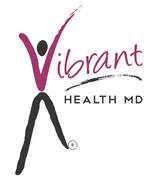Hormones
"A hormone (from Greek ὁρμή, "impetus") is a chemical released by a cell, a gland, or an organ in one part of the body that affects cells in other parts of the organism. Generally, only a small amount of hormone is required to alter cell metabolism. In essence, it is a chemical messenger that transports a signal from one cell to another." Excerpt from Wikipedia definition for hormone.
As anyone who has experienced adolescence (or experienced an adolescent...), menopause, andropause, Low T, or any of the many hormone imbalances that can affect us in subtle or not-so-subtle ways can attest, hormones play a major role in how we function and feel. At VHMD, we consider hormonal balance critical to the normal function of your body and mind, and therefore highly recommend a thorough evaluation when certain conditions exist. To do this, we use the Hormone Testing kit from ZRT labs and treat imbalances with bioidentical hormones from Pharmacy Solutions in Arlington, TX. Below is a very informative article on bioidentical hormones by ZRT labs:
As anyone who has experienced adolescence (or experienced an adolescent...), menopause, andropause, Low T, or any of the many hormone imbalances that can affect us in subtle or not-so-subtle ways can attest, hormones play a major role in how we function and feel. At VHMD, we consider hormonal balance critical to the normal function of your body and mind, and therefore highly recommend a thorough evaluation when certain conditions exist. To do this, we use the Hormone Testing kit from ZRT labs and treat imbalances with bioidentical hormones from Pharmacy Solutions in Arlington, TX. Below is a very informative article on bioidentical hormones by ZRT labs:
Bio-identical Hormones
What are bioidentical hormones?
From a physiological perspective, bioidentical hormones derived from natural plant sources are identical to those that the body produces for itself, in the right proportions. When we are “replacing” the body’s hormones, we feel it makes more sense to use entities which the body recognizes as its own, rather than hormones from horses, imbalanced versions or overly potent synthetic versions. The hormones we use are mainly Estradiol, Estriol, (E2, E3, respectively), progesterone, testosterone, and DHEA.
How can I get natural hormones?
With the exception of low potency progesterone creams (available over-the-counter), natural, bioidentical hormone therapy is generally obtained through a physician’s prescription.
Once my doctor prescribes bioidentical hormones, can I get them at any pharmacy?
Because the ingredients are naturally derived, it is impossible for a manufacturer to obtain a patent on these substances. Without a patent, it is unlikely that any drug manufacturer will go to the expense of pursuing these products for marketing and sales. Consequently, these bio-identical hormones must be prepared for the patient from pure, plant derived chemicals by a pharmacist at a compounding pharmacy.
What is a compounding pharmacy?
Actually, it’s the oldest type of pharmacy in the world: an apothecary with a pharmacist trained in formulating prescriptions and who prepares them from pure ingredients on the order of a physician. A caring and competent pharmacist works closely with the prescribing physician to create just the right dosage form and strength for you, the patient.
What dosage forms are available?
Compounded dosage forms are numerous and variable in nature. Each method has its advantages for use. Usage of specific dosage forms depend on patient compliance, type of response desired and medications involved. Oral capsules, vaginal suppositories, transdermal creams, gels and troches (a lozenge that dissolves between the gum and tongue) are among the variety of dosage forms available to be compounded. Ideally hormone supplementation should be tailored to individual treatment needs.
Where do bioidentical hormones come from?
Natural plant sterols are extracted from soybeans and/or Mexican yams. These are taken to a laboratory where they are converted chemically, or semi-synthesized to hormones that are identical and indistinguishable from the body’s own.
If they are synthesized in a lab, doesn’t that make them “synthetic”?
Since bioidenticals are derived from plant substances in soybeans and yams (diadzein and genistein), they are natural in the sense that they are formulated in the lab to be biologically identical in structure and function to hormones produced in the body. For that reason, we prefer to call these hormones “bioidentical, plant derived”. We use the term “synthetic” to describe chemically altered hormones that are many times more potent than the “naturals.”
Will my insurance company cover these treatments?
Although compounds such as these cannot be processed at the pharmacy like mass produced medications, most insurance companies will reimburse a percentage of the cost to the patient. Look closely at your benefit package. If you have a flexible spending account of HSA (Health Savings Account) you may use your account to pay for your consult and/or hormone prescription(s).
How will the doctor know what dose is right for me?
Every patient is different! Your physician will take many issues into account: age, weight, symptoms, gynecological history and prior or present use of hormones will all affect the choice of dose and dosage form. Saliva and/or blood spot testing to identify specific imbalances of one or more hormones eliminates physician guesswork when prescribing. Follow-up testing and regular monitoring when using hormones allows your doctor to adjust your dose as needed.
Copyright © 2013 ZRT Laboratory, LLC. All rights reserved. REV. 01.21.13
DISCLAIMER: ZRT Laboratory is a testing facility only, and does not diagnose, treat, or recommend treatment for medical conditions.
What are bioidentical hormones?
From a physiological perspective, bioidentical hormones derived from natural plant sources are identical to those that the body produces for itself, in the right proportions. When we are “replacing” the body’s hormones, we feel it makes more sense to use entities which the body recognizes as its own, rather than hormones from horses, imbalanced versions or overly potent synthetic versions. The hormones we use are mainly Estradiol, Estriol, (E2, E3, respectively), progesterone, testosterone, and DHEA.
How can I get natural hormones?
With the exception of low potency progesterone creams (available over-the-counter), natural, bioidentical hormone therapy is generally obtained through a physician’s prescription.
Once my doctor prescribes bioidentical hormones, can I get them at any pharmacy?
Because the ingredients are naturally derived, it is impossible for a manufacturer to obtain a patent on these substances. Without a patent, it is unlikely that any drug manufacturer will go to the expense of pursuing these products for marketing and sales. Consequently, these bio-identical hormones must be prepared for the patient from pure, plant derived chemicals by a pharmacist at a compounding pharmacy.
What is a compounding pharmacy?
Actually, it’s the oldest type of pharmacy in the world: an apothecary with a pharmacist trained in formulating prescriptions and who prepares them from pure ingredients on the order of a physician. A caring and competent pharmacist works closely with the prescribing physician to create just the right dosage form and strength for you, the patient.
What dosage forms are available?
Compounded dosage forms are numerous and variable in nature. Each method has its advantages for use. Usage of specific dosage forms depend on patient compliance, type of response desired and medications involved. Oral capsules, vaginal suppositories, transdermal creams, gels and troches (a lozenge that dissolves between the gum and tongue) are among the variety of dosage forms available to be compounded. Ideally hormone supplementation should be tailored to individual treatment needs.
Where do bioidentical hormones come from?
Natural plant sterols are extracted from soybeans and/or Mexican yams. These are taken to a laboratory where they are converted chemically, or semi-synthesized to hormones that are identical and indistinguishable from the body’s own.
If they are synthesized in a lab, doesn’t that make them “synthetic”?
Since bioidenticals are derived from plant substances in soybeans and yams (diadzein and genistein), they are natural in the sense that they are formulated in the lab to be biologically identical in structure and function to hormones produced in the body. For that reason, we prefer to call these hormones “bioidentical, plant derived”. We use the term “synthetic” to describe chemically altered hormones that are many times more potent than the “naturals.”
Will my insurance company cover these treatments?
Although compounds such as these cannot be processed at the pharmacy like mass produced medications, most insurance companies will reimburse a percentage of the cost to the patient. Look closely at your benefit package. If you have a flexible spending account of HSA (Health Savings Account) you may use your account to pay for your consult and/or hormone prescription(s).
How will the doctor know what dose is right for me?
Every patient is different! Your physician will take many issues into account: age, weight, symptoms, gynecological history and prior or present use of hormones will all affect the choice of dose and dosage form. Saliva and/or blood spot testing to identify specific imbalances of one or more hormones eliminates physician guesswork when prescribing. Follow-up testing and regular monitoring when using hormones allows your doctor to adjust your dose as needed.
Copyright © 2013 ZRT Laboratory, LLC. All rights reserved. REV. 01.21.13
DISCLAIMER: ZRT Laboratory is a testing facility only, and does not diagnose, treat, or recommend treatment for medical conditions.
At VHMD, Custom Bio-identical Hormone Replacement Therapy medications are compounded exclusively at Pharmacy Solutions and can be picked up at their new location 1921 W. Pioneer Parkway, Arlington, TX 76013 or shipped directly to you by them for a fee.
Contact Us today to schedule your Wellness visit with Hormone Balancing analysis!

